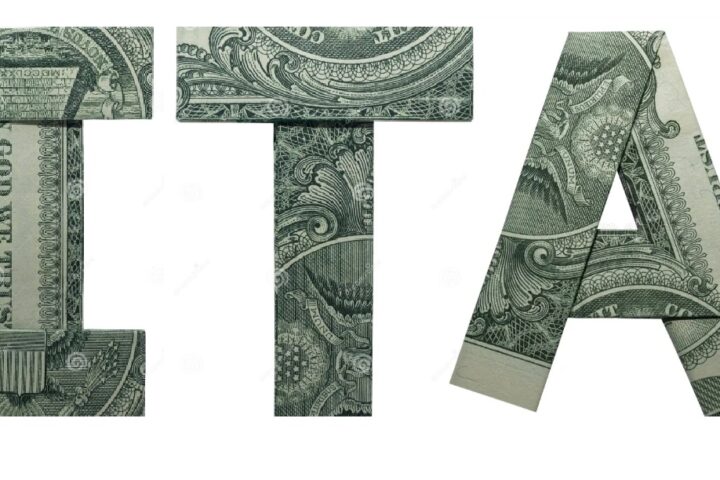What to Do If I Owe Back Taxes But I Can’t Pay?
You just filed your federal income tax return, looked at the amount you owed, and started to sweat because you don’t have the money. Whatever you do, ignoring your back taxes will not make it better.
Even if you have several years of unpaid tax bills with the IRS and can’t afford to pay any of them, it’s never a good idea to let the letters pile-up. After a few years of collection letters from the IRS you may start getting certified letters threatening things like levy, wage garnishment and seizure if you don’t pay up. If any of this sounds familiar, let us help you with some strategies to put your past-due IRS taxes behind you and earn peace of mind going forward.
Owing Back Taxes: The Big Picture
Once the IRS assesses a tax bill, it generally has 10 years to collect that amount before the statute of limitations expires. That is a very long time to have a creditor bothering you! And this isn’t any ordinary creditor. The IRS has a lot of power that it can use to collect your late payments. It can garnish wages, file a notice of federal tax lien, and empty your bank account.
By using the strategies outlined below, you can use the IRS’s own rules to manage the tax debt you owe and pay your back taxes within the limits of your budget.
Strategy 1: Pay the Back Taxes You Owe by the Return Deadline
You can file your tax return anytime before the deadline—but that doesn’t mean you have to pay your taxes at that time. You have until the due date of the return, not counting extensions, to pay without interest or penalty the amount owed. The IRS does not have to receive your payment by the deadline, but you must mail the payment (bearing a valid U.S. postmark) on or before the deadline.
Strategy 2: Pay within Four Months.
You can call the IRS and request a “full pay agreement.” Just let the IRS representative know how long it will take you to come up with the money, and he or she will give you the payoff amount and date, including the projected penalty and interest. You can request multiple full pay agreements if your original plans fall through, but you can’t get agreements totaling more than 120 days.
Strategy 3: Pay Owed Back Taxes in Installments
Like any creditor, the IRS wants the money as soon as it can get it; however, it will allow installment agreements. To get an installment agreement, you must have filed all required tax returns. If you have returns that you have not filed, you won’t get an agreement—period. Here’s a general installment rule to keep in mind: the less you owe, the easier it is to get an installment agreement.
Interest and penalties continue to accrue while you are in an installment agreement; however, the failure-to pay penalty rate decreases by half, from 0.5 percent per month to 0.25 percent per month.
No prepayment penalties. You can pay your owed back taxes an an IRS installment debt in full and make extra payments at any time without penalties. The installment agreement you make with the IRS establishes the minimum you have to pay each month. The sooner you pay, the less you pay in penalty and interest.
Under $10,000. If your owed back taxes are less than $10,000, the IRS will generally grant you a 36-month installment agreement with no financial information required.
Between $10,000 and $25,000. If you owe a tax amount between $10,000 and $25,000, the IRS will generally grant you a 72-month installment agreement with no financial information required.
Between $25,001 and $50,000. If your tax debt is between $25,001 and $50,000, you can get a 72-month installment agreement with little to no financial information required; however, you have to pay by direct debit or payroll deduction. The IRS generally won’t file a notice of federal tax lien in this circumstance.
Over $50,000 or can’t afford 72-month payments. If your tax debt is more than $50,000, you will need to submit your financial information to the IRS. Based on your submitted information, the IRS will determine your ability to pay. Depending on the circumstances, the IRS could file a notice of federal tax lien to protect its interests. Please let us help you if your case has gotten to this level.
Planning tip: If you owe back taxes of more than $50,000, and have the resources, pay enough to drop the balance below $50,000 and take the 72-month installment agreement. This way, you generally avoid the IRS filing a notice of federal tax lien, and you won’t have to give the IRS a detailed financial statement. And better yet, because the IRS doesn’t see your financial information, you avoid the chance that the IRS will want either a higher payment or full payment if you have assets that you or the IRS could liquidate.
Strategy 4: Owed Back Taxes : If You Can’t Pay in Full
The IRS does recognize that sometimes you just can’t pay the back taxes what you owe in full, whether due to a temporary hardship or because of your long-term financial situation. The IRS can and does provide relief in these circumstances! Some are temporary solutions, and others can permanently reduce your tax bill to an amount less than what you actually owe.
Owe Back Taxes: Currently Not Collectible
If the IRS places your owed back taxes in “currently not collectible” status, it will not require you to currently pay toward your tax bill. IRS policy states that it will place accounts in “currently not collectible” status when taxpayers have no income or assets available for collection, or have limited assets and income and collecting from them would create a hardship.
A hardship means an inability to meet basic living expenses—not mere inconvenience.
Hardship Example: Sally Smith filed her 2019 individual tax return and owed $4,000. She lost her job last month, is living off unemployment benefits, and has minimal savings. After reviewing her financial information, the IRS would likely place her balance owed in currently not collectible status.
Currently not collectible, however, is a temporary status—the IRS reactivates the collection case if you file a tax return showing increased income. Penalties and interest also continue to accrue.
Offer in Compromise for Owed Back Taxes
In select circumstances, the IRS will accept less than what you owe in full satisfaction of your owed back tax liabilities. The tax code calls this an “offer in compromise.” Applying can be complicated and working with a tax expert, like Ken-Mar Tax, may save you some stress. First, you need to submit a documented and detailed financial statement with your application. In general, the IRS has to determine that it’s unlikely that it can collect the tax liability in full and the amount offered reasonably reflects collection potential. If the IRS accepts your offer, you need to pay the IRS a settlement amount within 24 months. Once paid, the IRS releases all federal tax liens.
Warning. You have to file all tax returns and pay all taxes that come due for the next five years! If you don’t, you have failed your offer in compromise, and you can once again say hello to all your owed back taxes and tax debts. The IRS wants people who use the offer in compromise to fix their tax problems once and for all. Requiring future compliance is the way it does that.
Bankruptcy
This is the nuclear option and it’s not available to everyone. But in certain circumstances when you meet the timing requirements, you can discharge some back taxes owed in a bankruptcy. If you are considering bankruptcy and you have unpaid taxes, consult with a bankruptcy attorney who specializes in people with tax debts.
Fix the Problem Going Forward
Once you resolve the amount you owe the IRS using one of the above mentioned strategies, make sure you don’t get into trouble again! Change tax withholding levels, make enough estimated tax payments, and use tax reduction strategies to keep what you owe Uncle Sam to a legal minimum.
Contact Us
If you owe back taxes, Ken-Mar Tax can help you navigate through IRS policies and procedures. From getting your IRS penalties waived to communicating “currently not collectible” status and working out IRS Offers in Compromise, when you work with Ken-Mar Tax you don’t have to spend days on the phone with the IRS to sort your back taxes out. Ken Weinberg, Enrolled Agent, will do it for you.
- If you have back taxes and want to know the timeline and/or costs to get your back taxes resolved
- If you own a small business and want to discuss tax reduction strategies for the self-employed
- If you’re worried your last tax expert wasn’t doing the best they could have and want a second opinion…
Contact Ken Weinberg to set up a free consultation by filling out the form on this page.
Related Articles:
How to Get IRS Penalties Waived?
Back Taxes? Unfiled Tax Returns? No Need for a Tax Resolution Company. We Got You!




